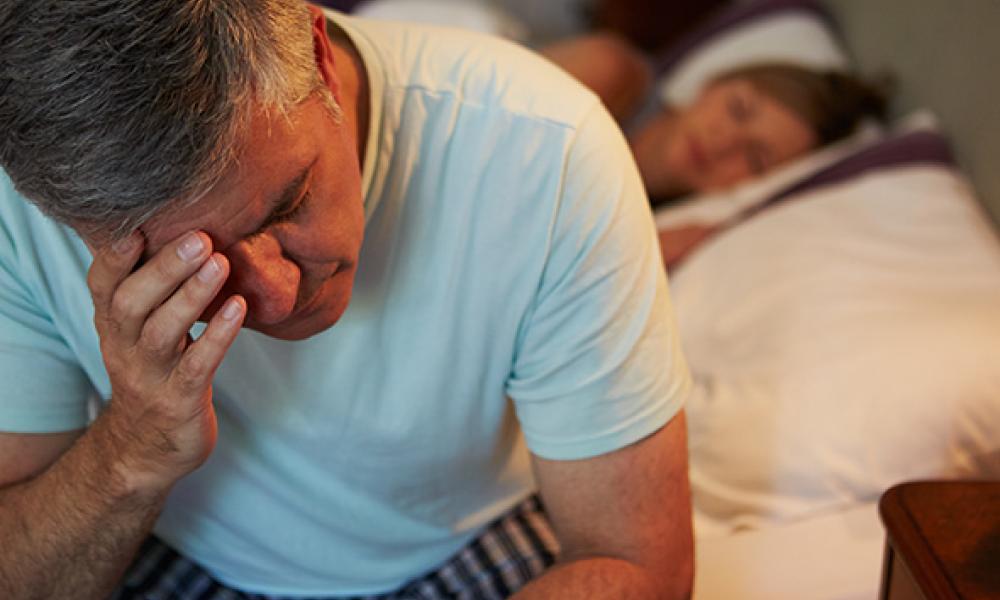
1. Lack of sleep makes pain worse
Studies show that up to 80% of people with arthritis can have difficulty sleeping. You may have trouble getting to sleep staying asleep, or waking up too early. Disturbed sleep can make your pain worse and can have a negative impact on your overall health. The following tips may help you get the shuteye you need.
2. Talk to your doctor
It seems simple, but people with rheumatoid arthritis (RA) often forget to speak up about sleep issues. If you have troubles with your sleep Your doctor can help identify what is causing your sleep problem as well as ways to manage these. The solution is often as simple as developing better sleep hygiene, that is good habits to support sleep.
3. Keep a regular schedule
Go to sleep and wake up at the same time every day, even on weekends and vacation. This will help your body develop an internal snooze clock. Making up for lost sleep on Saturday will only make it harder Monday morning. Most people need between six and eight hours of sleep each night. Avoid naps during the day, as this can disrupt your natural cycle. A consistent routine will help you sleep longer and improve the quality of your slumber.
4. Write in a sleep diary
Track your sleep pattern for a few weeks. Remember to include what time you went to bed and woke up, any daytime naps, and how tired you felt throughout the day. . Other helpful patterns to note include how much caffeine or alcohol you drank, if you took any medications, if you exercised and any stressful events that occurred during the day. Share the journal with your doctor.
5. Get moving
Research shows that people who are active sleep better. Men and women who get 150 minutes of moderate to vigorous activity each week are 65% less likely to feel tired during the day.But remember do your exercise during the day, not late at night. A late-night workout increases your levels of adrenaline and stimulates brain activity, which can make it more difficult to fall asleep.
6. Power down
When you turn off your cell phone, tablet and computer, your brain turns off too. Digital devices make it harder for us to wind down. Research shows that the artificial light from computers can interfere with sleep hormones in the brain.
7. Avoid caffeine and alcohol
If you enjoy a cup of coffee in the morning, it’s unlikely it will affect your sleep at night. But drinking caffeine late in the afternoon may affect your sleep. Caffeine is found in coffee, tea, energy drinks and chocolate stimulate our brain and makes us feel more awake. Stick with water and caffeine-free beverages in the afternoon. Limit evening fluid intake to avoid middle-of-the-night bathroom visits. Smoking late at night and drinking alcohol will also cause sleep issues.
8. Reserve the bed for sleep and intimacy
Has your bedroom become a spot to watch television, finish work and fold laundry? When you read in bed or write emails, you develop mental associations with the bed that can make it hard for you to fall asleep. Make your bedroom a sanctuary for sleep – keep the environment quiet, dark and at a comfortable temperature.
9. Treat stress
Do your thoughts race with worries as soon as you hit the pillow? You can reduce your stress by talking with your partner, friend or therapist. Relaxation techniques, such as meditation or yoga, can also help clear your mind before bed. If unsettling thoughts still keep you up, don’t stare at the clock. After a half hour, get out of bed. Read in a comfortable chair or have a cup of warm milk in the kitchen, then when you are feeling tired return to bed
10. Go for a sleep study
If changing your habits hasn’t helped, consider an overnight exam at a sleep lab. Discuss this with your GP first and if together you believe it may be of value they can provide you with the referral.
During a sleep study, electrodes are placed on the head, chest and legs and you go to sleep. Machines will monitor important biologic functions including brain activity, heart rate, eye movement and breathing rhythm through the stages of sleep. The study can help diagnose problems such as sleep apnoea, restless leg syndrome and sleepwalking.
11. Consider medication
When all else fails, your GP may suggest the short-term use of a medication to help you sleep. Pain relievers can reduce joint pain at night and this may help your sleep. Some medications used to treat RA, most commonly the corticosteroid prednisone, can cause insomnia and agitation for some people. If you are taking this your doctor may suggest you take this medication in the morning as this can sometimes help.











